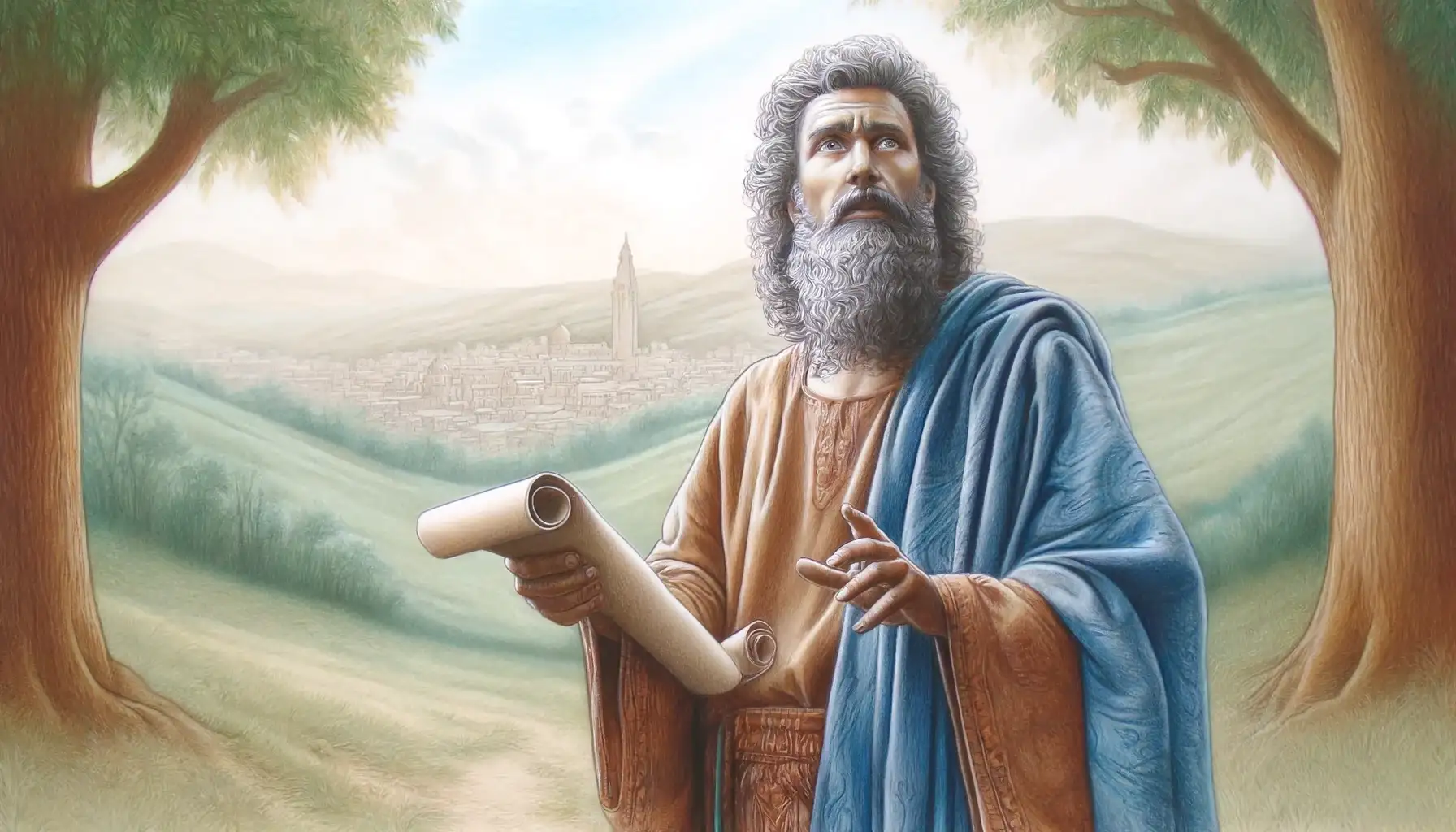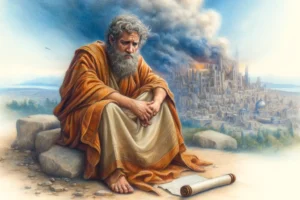
Isaiah: Prophet who Spoke of the Coming Messiah
Isaiah, a major prophet in the Hebrew Bible, is renowned for his profound prophecies about the coming Messiah. His messages span themes of judgment, redemption, and hope, emphasizing God’s plan for salvation and the restoration of Israel.
Quick Facts
- Major Prophet: Isaiah is one of the major prophets, with a book named after him that contains 66 chapters.
- Visionary: He had a powerful vision of God in the temple, receiving his prophetic calling (Isaiah 6).
- Messianic Prophecies: Isaiah foretold the coming of the Messiah, describing his birth, ministry, suffering, and ultimate triumph.
- Historical Context: He prophesied during the reigns of Uzziah, Jotham, Ahaz, and Hezekiah in Judah, around the 8th century B.C.
- Book of Isaiah: His writings are rich with imagery and cover themes of judgment against nations, the fall of Jerusalem, and future restoration.
- Immanuel Prophecy: He predicted the birth of Immanuel, symbolizing God’s presence with His people (Isaiah 7:14).
- Suffering Servant: Isaiah 53 describes the suffering and sacrifice of the Servant, a key messianic prophecy.
- Eschatological Visions: He envisioned a new heaven and a new earth, representing ultimate restoration and peace (Isaiah 65:17).
Historical and Cultural Context
Isaiah’s ministry spanned the reigns of four kings of Judah: Uzziah, Jotham, Ahaz, and Hezekiah (Isaiah 1:1). This period was marked by political turmoil, threats from the Assyrian Empire, and internal corruption within Judah. Isaiah’s prophecies addressed both the immediate political situation and the broader spiritual condition of the nation.
Vision and Calling
Isaiah’s prophetic calling is vividly described in Isaiah 6. He saw the Lord seated on a high and exalted throne, with seraphim attending Him. Overwhelmed by his unworthiness, Isaiah confessed his sinfulness and was cleansed by a coal from the altar. God then commissioned him to be His messenger, despite the foreseen resistance of the people (Isaiah 6:8-10).
Messianic Prophecies
Isaiah’s prophecies about the coming Messiah are among the most significant in the Hebrew Bible:
- Immanuel Prophecy: In Isaiah 7:14, he foretold the birth of a child named Immanuel, meaning “God with us,” symbolizing God’s presence and deliverance.
- A Child is Born: Isaiah 9:6-7 speaks of a child born to us, called Wonderful Counselor, Mighty God, Everlasting Father, Prince of Peace, whose government and peace will have no end.
- The Suffering Servant: Isaiah 53 describes the Servant who would suffer and bear the sins of many, providing a profound picture of sacrificial atonement and redemption.
- The Anointed One: Isaiah 61:1-2 depicts the Spirit-anointed servant proclaiming good news to the poor, binding up the brokenhearted, and proclaiming liberty to the captives.
Themes of Judgment and Redemption
Isaiah’s messages oscillate between themes of judgment and redemption:
- Judgment: He warned of impending judgment due to the people’s sins, idolatry, and social injustices (Isaiah 1:2-4, 10:1-4). The fall of Jerusalem and the Babylonian exile were seen as consequences of these actions.
- Redemption: Isaiah also prophesied future restoration and redemption. He spoke of a remnant that would return (Isaiah 10:20-22), the coming of a new, righteous king (Isaiah 11:1-9), and the eventual establishment of God’s kingdom (Isaiah 2:2-4).
Eschatological Visions
Isaiah’s prophecies extend to eschatological themes, envisioning the ultimate fulfillment of God’s plan:
- New Heaven and New Earth: Isaiah 65:17-25 describes a new creation where there is no more suffering or sorrow, symbolizing the ultimate restoration and peace.
- Universal Peace: Isaiah 2:4 envisions a time when nations will beat their swords into plowshares and no longer learn war.
Theological Themes
Isaiah’s prophecies convey profound theological themes:
- Holiness and Sovereignty of God: Isaiah’s vision of God emphasizes His holiness and sovereignty over all nations.
- Hope and Salvation: Despite the warnings of judgment, Isaiah’s prophecies offer hope and the promise of salvation through the coming Messiah.
- Justice and Righteousness: The call for social justice and righteous living is a recurring theme, reflecting God’s concern for the marginalized and oppressed.
Legacy and Impact
Isaiah’s prophecies have had a lasting impact on Jewish and Christian traditions. His messianic prophecies are seen as foundational in Christian theology, pointing to the life and ministry of Jesus Christ. In Jewish tradition, Isaiah’s messages of hope and redemption continue to inspire faith and resilience.
Conclusion
Isaiah, the prophet who spoke of the coming Messiah, delivered profound messages of judgment, redemption, and hope. His prophecies about the Messiah’s birth, ministry, suffering, and ultimate triumph remain central to biblical theology and continue to inspire faith across generations.

